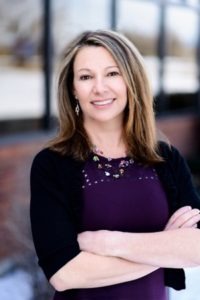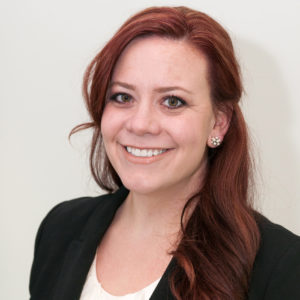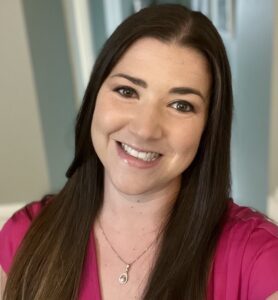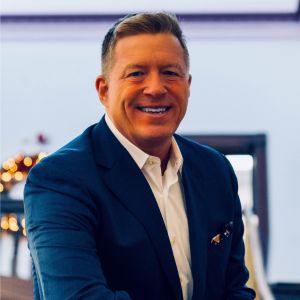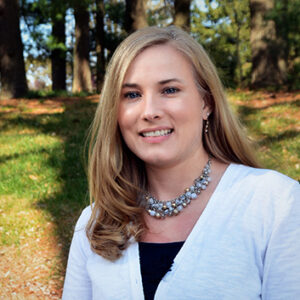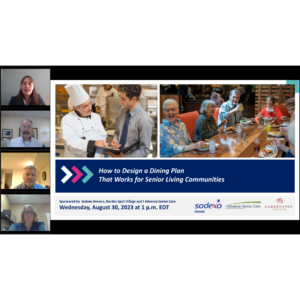Helping Staff Gain U.S. Citizenship
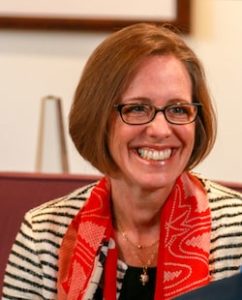
Valerie Burke, chief philanthropy officer, Goodwin House
When we interviewed Goodwin House Incorporated in the past about their staff retention strategies, one of the most notable offerings was their U.S. Citizenship Program. The program provides staff with grants to help cover the cost of the $725 citizenship application fee, and also connects staff with residents who are willing to tutor them to help them prepare for their citizenship exams.
The program has seen such success, and Goodwin House has had so many requests from people all over the country asking for advice on how to start a program of their own, that Goodwin House created a Citizenship Program Playbook, available to download for free. That playbook could be the first step in helping countless people along their journey to U.S. citizenship.
How the Goodwin House U.S. Citizenship Program Came to Be
One of Goodwin House’s own residents came up with the idea for the U.S. Citizenship Program. Resident Rita Siebenaler is the granddaughter of four people who emigrated from Ireland. According to Valerie Burke, chief philanthropy officer at Goodwin House, when Siebenaler learned that the citizenship application fee had increased to $725, she knew that many Goodwin House employees who wanted to become citizens couldn’t afford the fee. She spoke with the human resources department and, in a few weeks, the Citizenship Application Fees Grant program was funded through the Goodwin House Foundation.
Residents, members, staff, and friends contribute to the Foundation, which not only provides citizenship grants, but also supports staff with tuition assistance and emergency financial grants.
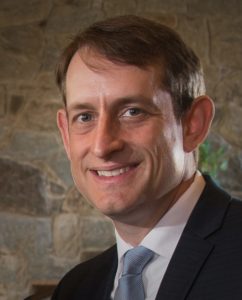
Rob Liebreich, president and CEO, Goodwin House
The Citizenship Program has “been a win for residents, employees, and the organization,” says Burke. To date, since its beginning in 2018, the program has been able to support almost 100 staff on their citizenship journeys.
Rob Liebreich, president and CEO of Goodwin House, explains that staff were a little skeptical at the program’s onset, and they wondered if the support that the program offered was really true. “There was a little skepticism, but it melted away quickly as folks applied,” says Liebreich. “It’s been a wonderful gift for our organization.”
Burke notes that many successes have come of the program. “The only voicemail I save is from one of our employees who called right after she got her citizenship,” she says. “That joy in her voice is something I listen to whenever I think, ‘Is my work meaningful.’”
“We had an employee from Yemen who hadn’t seen her mother in over six years. With her citizenship, she could visit her mother. Another had only dreamed of America in the movies. She called on the phone and said, ‘All I want is for my parents to come see me in America and see where I work,’” says Burke. “One employee from Ghana came here for education, and said, ‘In my country, there was one computer for 400 students. I came to Virginia, went to Northern Virginia Community College, and Goodwin House helped me pay for it. I can have my own computer.’ He’s been promoted three times here. His first job was here, and he wants to retire here.”
While Goodwin House employees may choose to stay, that’s not a requirement of the Citizenship Program. Burke explains that one employee who received the program benefit wanted to become a dental hygienist. Goodwin House helped with his tuition and his citizenship, knowing that he would eventually move on. “He’s just as much an ambassador for Goodwin House in the dental field as he was at Goodwin House,” says Burke. “Building those citizens and having them serve in our community is wonderful.”
Supporting the Development of Additional Citizenship Programs
The Citizenship Program has brought tremendous value to the Goodwin House community, and now Goodwin House is working to help others start similar programs. Burke explains that after Goodwin House’s Citizenship Program was features in the Washington Post, both individuals and organizations started to reach out to learn more about the program – and about starting their own programs.
Creating the playbook was a team effort involving the Goodwin House marketing and communications, foundation, and human resources teams. Burke explains that the teams gathered together all of the materials that have been created for the program, included compelling photos, and also included detailed logistics, including information on how applications are processed and the work Goodwin House resident volunteers have performed.
“We started to create a playbook so others can replicate this program,” explains Liebreich. “We see that this is really well beyond just the senior living field. It can be applicable to other industries, like hotels and restaurants. We’ll be much more reliant on the immigrant population in the future, and we see this as a critical tool for organizations to follow. This program speaks very clearly to how open and excited we are to welcome people in.”
“We hope that organizations within our space and beyond see the value of the immigrant population and how important they are, and that they see how creating the path to citizenship is the right thing to do,” says Liebreich. “We hope people will download the playbook and roll it out, and others will follow and support more people. We hope people will engage their residents in the way our residents have been engaged from the start.”
Liebreich notes that Goodwin House residents are highly involved in training and tutoring staff during their citizenship process. “It’s not just a path of give money and we’re done. It’s really, ‘Let me invest in you as a person, and invest in time and energy.’ The pride, joy, and connectivity that come from that have been awesome. We want to share that experience and have that replicated again and again.”
The playbook, A Guide to Establishing a U.S. Citizenship Program for Employees, is available for download now.

Paige Cerulli is a contributing writer to i Advance Senior Care.
Related Articles
Topics: Administration , Featured Articles , Operations , Staffing , Training



